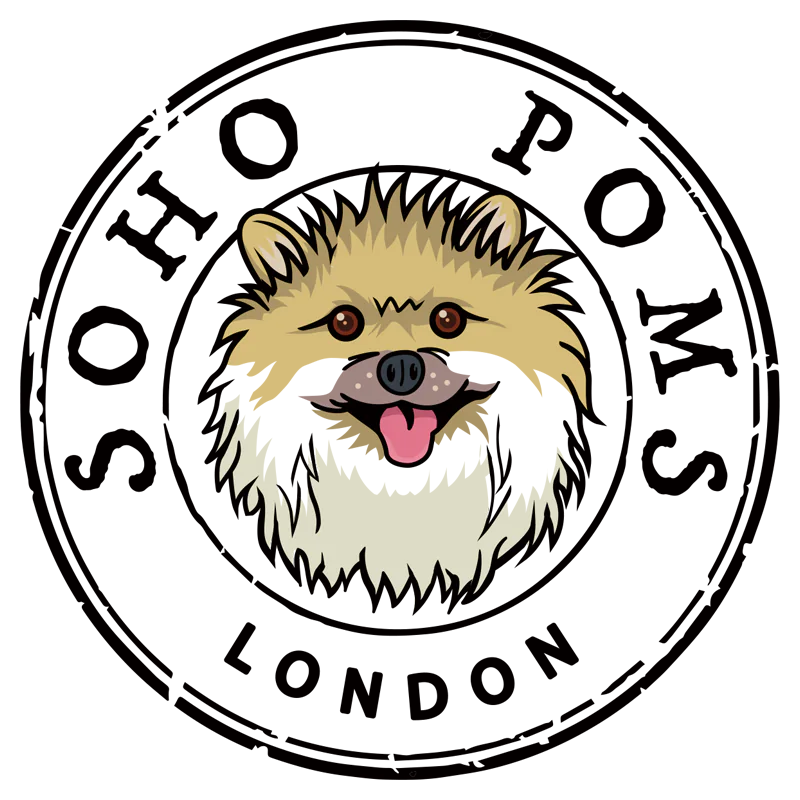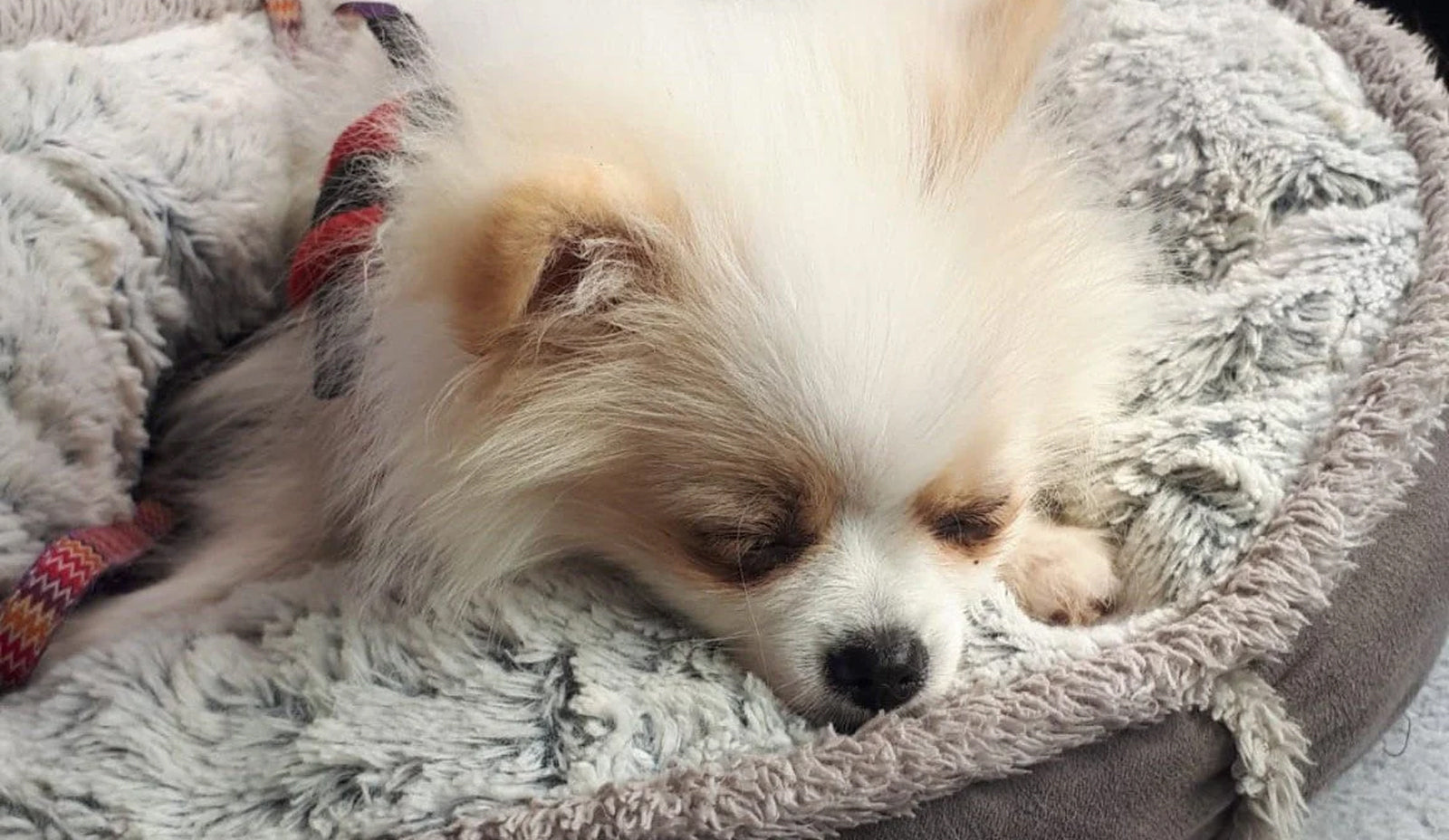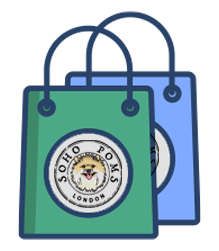
Keeping Your Furry Friend Calm: Top Tips for Reducing Dog Anxiety During Fireworks
Firework nights can turn peaceful homes into chaos for dogs struggling with noise fears. When your furry friend trembles or hides, it's clear that dog anxiety during fireworks is more than just a nuisance. You'll find 10 practical tips for calming dogs that can help turn those stressful evenings into safer, calmer moments. Let's explore how to keep your dog calm and protect their well-being during firework season.
Understanding Dog Anxiety During Fireworks
Why Dogs React to Fireworks
Fireworks create a perfect storm of stress triggers for our four-legged friends. The unpredictable, loud bangs and flashes can overwhelm a dog's sensitive hearing and natural instincts. What we see as a colourful display, they experience as a threatening sensory assault. Dogs don't understand that these strange noises aren't dangerous, which is why their fight-or-flight response kicks in.
Many dogs show signs of distress including panting, pacing, trembling, hiding, or even trying to escape. Some might become unusually clingy, while others could show destructive behaviour as they try to cope with their fear. Recognising these signs is the first step in helping your pet.
10 Top Tips for Calming Dogs During Fireworks
Before Firework Season Begins
-
Create a Safe Haven
Set up a comfortable, secure space where your dog can retreat. Include their favourite bed, toys, and items that smell like you. Cover windows to block flashing lights and muffle sounds with thick curtains or blankets. This creates a sanctuary away from the chaos. -
Sound Desensitisation Training
Weeks before firework season, play recordings of firework sounds at a very low volume while giving treats and praise. Gradually increase the volume over time, helping your dog form positive associations with these noises rather than fear. -
Visit Your Vet
Chat with your vet about your dog's specific anxiety. They might recommend calming supplements, pheromone diffusers, or in severe cases, medication to help manage pet anxiety during firework displays.
On Firework Nights
-
Exercise Earlier
Take your dog for a long walk during daylight hours before any displays are likely to start. A tired dog is typically calmer and may be less reactive to stressful stimuli. Make sure their ID tags and microchip details are up to date, just in case. -
Create Background Noise
Turn on the telly or play music with a steady beat to mask the sound of fireworks. Classical music or specially designed pet calming music can be particularly effective for keeping dogs calm during noisy events. -
Stay Calm Yourself
Dogs are brilliant at picking up on our emotions. If you remain relaxed and act normally, it signals to your pet that there's nothing to worry about. Avoid excessive comforting which might reinforce anxious behaviour. -
Try Anxiety Wraps
Products like thunder shirts apply gentle, constant pressure to your dog's torso, similar to swaddling a baby. Many pet parents report these are effective for fireworks safety for dogs by helping to reduce anxiety symptoms.
Additional Support Strategies
-
Distraction Techniques
Engage your dog with their favourite games or puzzle toys filled with tasty treats. Mental stimulation can help shift their focus away from frightening noises. A frozen Kong toy can provide extended distraction. -
Natural Calming Aids
Consider natural pet anxiety solutions like lavender-scented items or calming treats formulated specifically for stress relief. These can take the edge off milder cases of firework anxiety. -
Create a Routine
Stick to normal feeding and walking times as much as possible. Maintaining routine provides security and predictability for your dog when everything else feels chaotic.
Long-Term Strategies for Firework Anxiety
Building Resilience
For dogs with severe firework phobias, a long-term behaviour modification plan might be necessary. Working with a professional dog behaviourist can help your pet develop coping mechanisms that last beyond a single firework season.
Remember that patience is key. Some dogs may always find fireworks challenging, but with consistent support, their anxiety can become more manageable over time. The goal isn't necessarily to eliminate fear completely but to help your furry friend cope better.
By implementing these tips for calming dogs during fireworks, you're not just making one night easier—you're investing in your dog's overall emotional wellbeing and building trust in your relationship. Your understanding and preparation can transform firework nights from terrifying to tolerable for your beloved pet.
Understanding Dog Anxiety During Fireworks
Dogs experience the world through their senses in ways we can't fully grasp. When fireworks light up the sky, what's a visual treat for us becomes a sensory nightmare for many pets. Let's dig into why these displays cause such distress and how to spot the signs.
Why Fireworks Scare Dogs
Dogs hear sounds four times more sharply than humans do. The sudden, loud booms of fireworks can feel like an assault on their sensitive ears. These unpredictable noises trigger their survival instincts, making them think they're in danger.
Unlike thunderstorms that come with warning signs like changing air pressure and darkening skies, fireworks start without any signals your dog can detect beforehand. This element of surprise makes them even more frightening.
The combination of bright flashes, burning smells, and vibrations that can be felt through the ground creates a multi-sensory threat that many dogs find overwhelming. Your pet isn't being dramatic – their brain is telling them to panic for survival.
Some breeds are more sound-sensitive than others, but any dog can develop firework fears, especially if they've had negative experiences during previous displays.

Recognising Signs of Anxiety
Your dog can't tell you they're scared, but their body language speaks volumes. Panting that isn't related to heat or exercise is often the first sign of stress. Look for rapid, shallow breathing and an open mouth with the tongue pulled back.
Physical signs include trembling, pacing in circles, or freezing in place. Many dogs will seek hiding spots under furniture or in bathrooms. Some might stick to you like glue, while others prefer to be alone when frightened.
Bathroom accidents in house-trained pets signal extreme distress. Your dog isn't being naughty – their fear has overridden their training. Drooling, yawning when not tired, and licking lips are other subtle stress indicators.
The most dangerous response is escape attempts. Dogs have been known to break teeth on crates, scratch through doors, or jump fences when panicked by fireworks. This fear-driven flight can lead to injuries or lost pets.
Common Misconceptions and Myths
Many pet owners think comforting a scared dog rewards their fear. This isn't true. Fear is an emotion, not a behavior that can be reinforced. Soothing your pet won't make them more afraid – it provides security when they need it most.
Another myth is that dogs will "get used to" fireworks if exposed repeatedly. For most dogs, each frightening experience actually makes the next one worse, not better. Without proper desensitization training, repeated exposure typically increases fear.
Some believe a tired dog won't notice fireworks. While exercise helps reduce overall anxiety, physical fatigue doesn't block out scary noises. A dog's hearing remains sharp regardless of how much they've played that day.
The idea that "my dog isn't scared, they just bark at the noise" misreads the situation. Barking at fireworks is rarely aggression – it's more likely a stress response or an attempt to make the threatening sound stop.
Tips for Calming Dogs During Fireworks
The right preparation can transform a night of panic into a manageable experience for your furry friend. These practical steps can help reduce dog anxiety during fireworks and create a sense of safety when the sky lights up.
Creating a Safe Space
Your dog needs a retreat where they feel protected during firework displays. Pick a room away from external walls and windows – interior bathrooms or closets often work well. The goal is to buffer noise and block flashing lights.
Make this space cozy with your dog's bed and favorite toys. Add items that smell like you, such as a worn t-shirt, which provides comfort through your scent. Some dogs prefer being under blankets or in partially enclosed spaces like covered crates.
Block out light by closing blinds and curtains completely. Consider using blackout curtains in rooms where your dog spends time during fireworks. The less visual stimulation, the better for keeping dogs calm during the commotion.
Sound insulation matters too. Playing white noise, fan sounds, or specially composed dog music can mask the sharp cracks and booms. The steady background noise helps drown out the startling peaks of firework sounds that trigger panic.

Using Calming Products
Anxiety support supplements can take the edge off firework stress for many dogs. Products containing ingredients like L-theanine or tryptophan may help promote relaxation without causing drowsiness. Start these supplements before firework season for best results.
Pressure wraps like ThunderShirts apply gentle, constant pressure that many dogs find soothing. This works similar to how swaddling calms babies. Put the wrap on before the fireworks start, as it's more effective as a preventative than an emergency solution.
Pheromone products mimic the comforting scents mother dogs release to calm their puppies. Available as plug-in diffusers, sprays, or collars, these can create a calming atmosphere throughout your home. Set up diffusers at least 24 hours before expected fireworks.
For severe cases, your vet might recommend prescription medications. These aren't meant to sedate your dog but to reduce anxiety enough that they can cope. Always follow dosing instructions carefully and never share medications between pets.
Distracting with Play and Treats
Engaging your dog's brain can shift focus away from frightening noises. Food puzzle toys filled with high-value treats create positive associations and mental stimulation. Freeze wet food in a Kong toy for a longer-lasting distraction.
Interactive play sessions during firework displays can work wonders for some dogs. A game of tug or fetch might seem counterintuitive when your dog is stressed, but familiar play can release tension and create positive feelings that counter fear.
Try teaching a new trick during fireworks season. Learning requires concentration, which can help divert your dog's attention. Keep training sessions short and reward-heavy to maintain their interest despite distractions.
Chewing naturally reduces stress for dogs. Offer long-lasting dental chews or safe bones when you expect fireworks to start. The repetitive action of chewing releases endorphins that promote feelings of calm and well-being in anxious pups.
Fireworks Safety for Dogs
Beyond comfort measures, strategic planning helps protect your dog during firework season. Taking proactive steps before, during, and after displays ensures your pet's physical and emotional safety during this challenging time.
Planning Ahead for Fireworks Night
Mark your calendar with dates of planned firework displays in your area. Many communities announce major events in advance. This allows you to prepare specific strategies for those nights rather than being caught off guard.
Update your dog's identification before firework season begins. Check that collar tags are legible and current. Verify that microchip information is up to date in case your dog escapes in panic. More pets go missing during fireworks than any other time.
Adjust your daily schedule on fireworks nights. Walk your dog during daylight hours when displays are unlikely. Feed them earlier than usual to avoid digestive issues triggered by stress. Having a full belly can also help them feel more relaxed.
Consider arranging a pet sitter experienced with anxious dogs if you must be away during fireworks. Your dog will feel more secure with human company than alone. Brief the sitter thoroughly on your dog's specific anxiety signs and calming techniques.
Keeping Dogs Calm During the Show
Stay home with your pet during major firework displays if possible. Your presence provides security and allows you to monitor their stress levels. Remain calm yourself—dogs pick up on our emotions and may become more anxious if they sense your tension.
Create a normal atmosphere by engaging in typical evening activities. Watch TV, read, or work on quiet projects while staying near your dog. This signals that nothing unusual is happening despite the noise outside.
Offer water regularly, as anxious dogs often pant heavily and can become dehydrated. Place water bowls in multiple locations, including their safe space, so they don't have to venture far if thirsty.
Resist the urge to take your dog outside during fireworks, even for bathroom breaks. If absolutely necessary, use a secure harness and leash, keep trips brief, and stay in areas with solid fencing. Even normally obedient dogs might bolt when scared.
Post-Fireworks Care and Comfort
Monitor your dog closely after fireworks end. Some dogs remain anxious for hours following displays. Continue providing a calm environment until you're confident they've returned to their normal behavior patterns.
Check your yard before letting your dog outside after fireworks. Debris like spent fireworks can contain chemicals harmful to pets if chewed or ingested. Scan the perimeter for any damage to fencing that could allow escape.
Give your dog extra attention in the days following intense firework displays. Additional walks, play sessions, or cuddle time helps reset their emotional state and reinforces your bond. This emotional recovery time is important for highly sensitive dogs.
Consider joining online support communities where pet owners share experiences and strategies for managing firework anxiety. Learning what works for others might give you fresh ideas for helping your own dog cope better next time.
For dogs with severe reactions, document their behavior during and after firework events. These notes help track improvement over time and provide valuable information for veterinarians if you seek professional help. Many owners find that consistent application of calming techniques yields gradual improvement year after year.
Remember that each dog is unique in how they experience and recover from stress. What works for one might not work for another. Patient observation and willingness to try different approaches will help you discover the best way to support your special friend through firework season.

If you're looking for products that might help your dog feel more secure during stressful times, quality dog carriers can provide a portable safe space. Many dogs find comfort in these enclosed environments during anxiety-provoking situations like fireworks or travel.
For more detailed guidance on preparing your dog for upcoming firework displays, check out these updated suggestions from experienced dog owners who have successfully helped their pets through many firework seasons. Their real-world experience complements the strategies outlined here.
By combining preparation, calming techniques, and attentive care, you can help your beloved pet weather firework season with minimal distress. Your efforts make a world of difference to a dog who depends on you for safety and comfort during frightening times.








